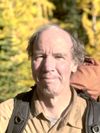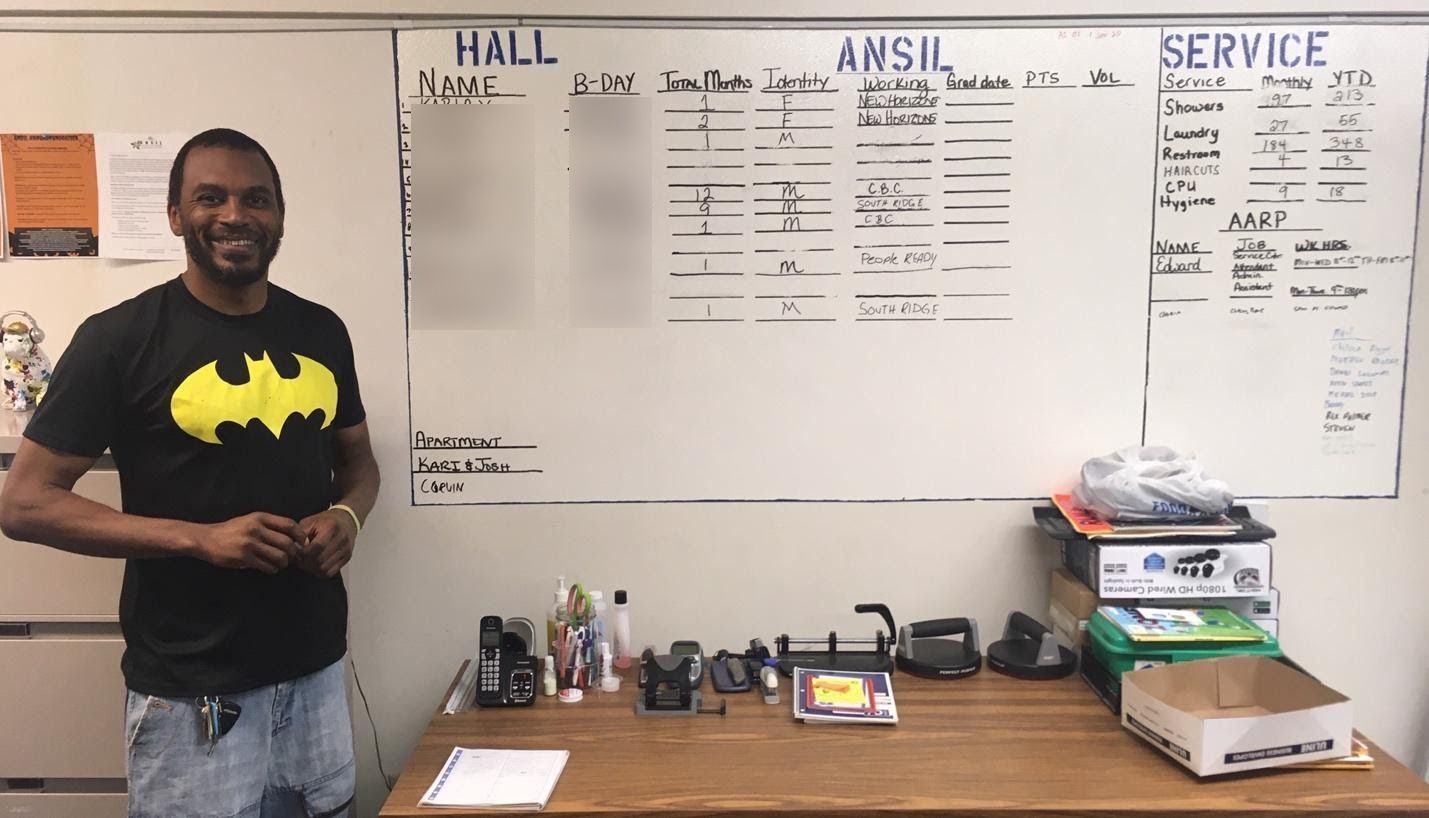Tell me about your life
I have what I like to consider a real diverse life. I grew up in North Carolina with mainly my mom and my sister. My family was a pretty tight group. Everybody was involved. For me, there was a big focus on sports growing up. I was a pretty decent kid in school, but sports was my main thing. After school, I went to college and played both football and baseball there as a two-sport athlete. My roommates and I got in a little bit of trouble from time to time. And there was a point when I realized that Mom didn't raise me like this, you know, to do the things that I was doing.
So, I decided to take a different path and join the military to gain some discipline. It was probably one of the most significant decisions that I've ever made, because it changed my life in ways that I could not have imagined. Not just from the physical things that I've been able to do, such as training to be a surgical technician in the operating room for the first few years of my military career and then transition to become a helicopter pilot. I flew helicopters for the last 15 years. I was deployed three times, a couple times in Iraq and once [in] Afghanistan.
During my time in the service, I teamed up with my wife and created two children. My daughter is now 20 and my son is 18. They have had a significant impact on the path that I decided to take. I still had my moments of being wild and stuff, but the birth of my daughter kind of calmed me down a little bit.
As far as the military goes, it had a very significant impact on my mental growth and maturity. From the first time I touched a helicopter it helped shape my mind to let me know that I can pretty much do anything in life. People notice I don’t fear very much, but honestly, I truly don't fear anything. It is not because I've been [faced] with death and survived, but it's because I love my life so much. I've done so many things that I never thought I could or would do. So, it's to the point where, if I were to go tomorrow, I'm okay with that. That’s why I don't fear death.
That's awesome. So, you founded A New Start In Life (ANSIL), right?
I turned it into a nonprofit. ANSIL was initially a program of the River of Life Metropolitan Community Church. It was a program set up on some of the same principles. It’s at the same address, but we do slightly different things. The dorm and service center were a part of the original blueprint. The difference is that we are now independent. We're not religious or political based. It’s 100% about helping the individual, in whatever stage of life they’re at. The philosophy has shifted a lot with that. And the involvement of people that I've been able to bring to the ANSIL organization has grown. Their selfless mindsets and hearts are amazing. They understand that we are using innovative methods to improve our community.
Okay, so what values drive your leadership of ANSIL?
Humanity, that's it. Everything is centered around Humanity. We do things that, in the best of our abilities, keep humanity going in a positive, and thriving direction. Sometimes you have to let go so people can find their own path in order to further humanity as a whole, because if not then we just continue to enable. And when you enable, nobody's really growing. ANSIL is A New Start In Life right when you have that opportunity to grow into the person that you want to be from this day forward. You don't have to continue to be the person that you were in the past. That is important. You want to recognize that, own your role in creating your current lifestyle, but understand that it’s A New Start In Life. Every moment, every decision that you make, provides you the opportunity to give a new start.
Is there a single incident in your life that inspired you to embrace this program?
If you don’t mind, I'll talk about a single incident, and then I’ll also talk about philosophies.
The single incident or situation that helped me realize it was time for me to leave the military and eventually do something similar to what I’m doing now involved my upbringing. Growing up in North Carolina as a young black man, I was profiled over and over and over again for various things. Leaving my driveway, having a nice car, walking with friends, you know the drill.
So, as a scout helicopter pilot, my job was to go out and profile people. There was a point when we were doing a mission and we got a call saying a truck likely set out IEDs to a convoy that was hit. So, we were following a vehicle and it matched the description, just like me as a young black man, I would often match the description. We’re a team of two. My wingman was ready to go in and take care of business. But something didn’t feel right. Route Tampa was a long stretch of road, so we had time to assess the situation a bit further.
In doing so we realized there was a lady and two kids in the back. The lady and kids were laid over on each other, so we didn’t see them initially. So, who knows? They could have been part of what happened. But it’s one of those decisions that you have to make. We didn’t engage, and after the debrief as I was lying in bed, it hit me. That point it was like when I was growing up: people got to decide whether I went to jail or not. What I'm doing now, I make a decision whether people live or die.
That's when the part about humanity came into play. I realized, yes, they probably know people who have done some very bad things. Growing up, I knew people would do very bad things also. Do I deserve to die for that? Do they deserve to die for that? So that was the single most important incident [that] made me feel like there's something more that I could be doing in life, on a more positive note.
There are three philosophies that shaped my life then and shape my life now.
One is a poem made famous by Marianne Williamson and redone on the movie Coach Carter. It's called Our Deepest Fear. It begins “Our deepest fear is not that we are inadequate. Our deepest fear is that we're powerful beyond measure.” I love that line.
And then there is one by Maya Angelou that says “Do the best you can until you know better. Once you know better, do better.”
And then one that I thought my dad told me goes “You can do anything in life, because if one person has done it, it means it can be done. If no one's ever done it, then be the first to do it.” Somebody is always the first.
So those are three philosophies surrounded around bettering humanity. That is how I live my life. That's why I have no problem doing what we do here at ANSIL around the clock.
What would you say are your biggest challenges?
Trust and trusting the system, trusting that people that get involved are getting involved for the right reasons. The right reason in my mind is to help out the individual at whatever stage of the life they’re in. That's probably one of my biggest challenges—trusting the system and that we’ll continue to have the finances to keep this place up and running.
And what would you say are your greatest strengths?
Just the fact that I know I can do whatever it is that I have decided to do. Everything can’t happen all at one time. To me, my vision is already complete, I’m just waiting for time to catch up.
How do you want to be remembered?
If people decide to remember me at all, I would like to be as one that loves life, that literally lives the life that I've chosen. That I’ve shown people that you can accomplish the same things out of love and respect that you can out of hate and anger, so choose to love.
Tobaski Snipes directs ANSIL (A New Start In Life), which provides shelter for homeless young adults (18-24 years old) in a life skills and mentoring program and provides other services to the homeless community in Kennewick. He also serves on the Board of SARC and of Wake Up Nation, gives bi-monthly inspirational talks at the Benton-Franklin County Jail, hosts Karaoke at three local places, and volunteers as a football coach at Kamiakin High School.
Steve Ghan is a servant-leader in the Tri-Cities.


